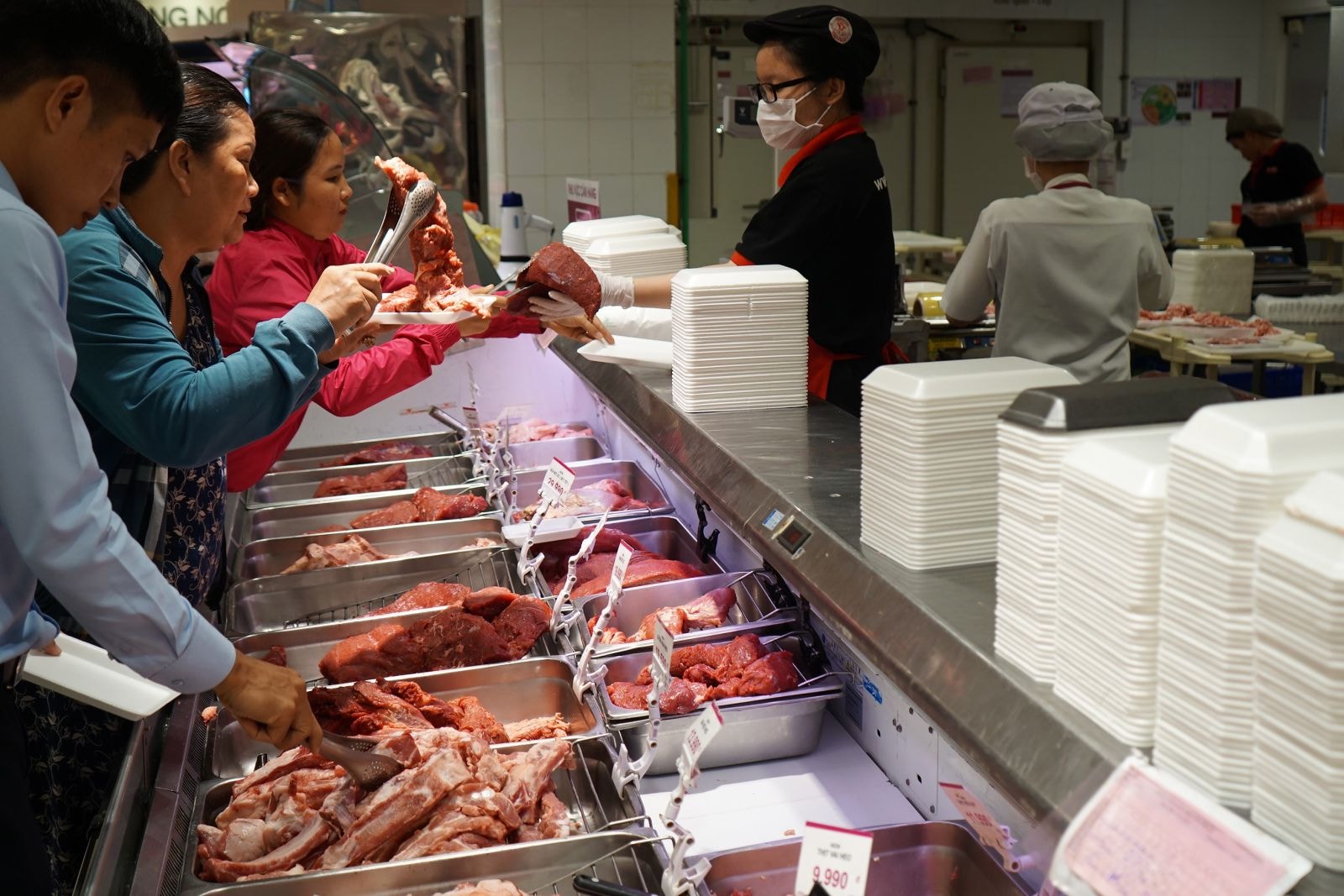American pork is rushing to Vietnam to avoid the trade war?
Up to this point, US pork products exported to Vietnam have doubled in volume and tripled in value.
Vietnam is currently the second largest trading partner for US pork products, after Hong Kong (China). Vietnam also imports processed and preserved pork belly, ham, and many other processed pork products from the United States.
Increasing supply
Mr. Gerald Smith – Head of Foreign Agricultural Affairs (US Consulate General in Ho Chi Minh City) said that Vietnam consumes more pork than other types of meat. In 2017, the country consumed 1.8 million tons of pork, accounting for 57% of the total meat volume. In 2017, Vietnam imported pork and pork products from the US with a total value of 12 million USD, an increase of 140% compared to the previous year.
 |
| The demand for imported meat is increasing. |
In the context of rising pork prices in Vietnam, due to the decrease in domestic pig production after a long period of sharp price decline, the abundant pork supply in the US has become a large source of supply for the domestic market. A report from the General Department of Customs shows that in May 2018, the amount of pork imported from the US to Vietnam reached more than 11,000 tons, accounting for 37% of imported meat.
The large amount of pigs gives the US a competitive advantage in price when exporting. Pork in the US is strictly controlled in terms of breeding processes, input feed quality and modern slaughtering processes, ensuring hygiene and animal humane regulations.
Mr. Bill Luckey - Chairman of the NPB International Marketing Council, up to this point, US pork products exported to Vietnam have doubled in output and tripled in value.
“In the US, people often use frozen meat, preserved after slaughter, while Vietnamese people prefer fresh, hot meat immediately after slaughter. We aim to exploit the frozen meat product segment. In addition, Americans hardly eat offal, each year a large amount of red offal is exported to Vietnam. In the near future, we will focus on exporting white offal because the demand for this type of meat in Vietnam is very high,” said a representative of NPB.
The "escape" of American pork?
The demand for pork in Vietnamese meals is increasing, combined with China's additional tax on imported pork from the US of up to 25%, bringing the total tax that this market imposes on US pork to 71%, not including value added tax. With such a high tax rate, pork from the US has difficulty entering China, forcing it to find other markets, including Vietnam.
Commenting on this situation, Mr. Pham Duc Binh, General Director of Thanh Binh Joint Stock Company, said that the high price of domestic pork coincided with the outbreak of the US-China trade war. China imposed high taxes on meat imported from the US. Furthermore, another major market for US meat, Mexico, also announced that it would impose a 20% tax on some types of fresh and frozen pork imported from the US. Facing difficulties in the two main markets, more US pork will be imported into the Vietnamese market in the near future.
Mr. Pham Duc Binh, Vice President of the Vietnam Animal Feed Association, said that in order for domestic meat products in particular and agricultural products in general to not lose at home, the only way for the livestock industry is to improve technology and livestock techniques to increase productivity, product quality, and reduce costs.
In addition, there should be regulations that pork importing enterprises must have quotas, not allowing them to import as much as they want without strict control. This is the method that many countries in the world are applying to protect the domestic livestock industry and protect consumers.
A representative of a domestic livestock company also said that it is necessary to control the quality of imported meat and this is the most important thing. Because only by doing so will expired meat, poor quality meat, meat contaminated with antibiotics... be unable to be smuggled into Vietnam. "To control the quality of imported livestock products as well as stabilize the domestic market, state management agencies need to strengthen technical barriers for these products when imported into Vietnam to ensure quality, clear origin, and reasonable price" - the representative of this enterprise emphasized.

